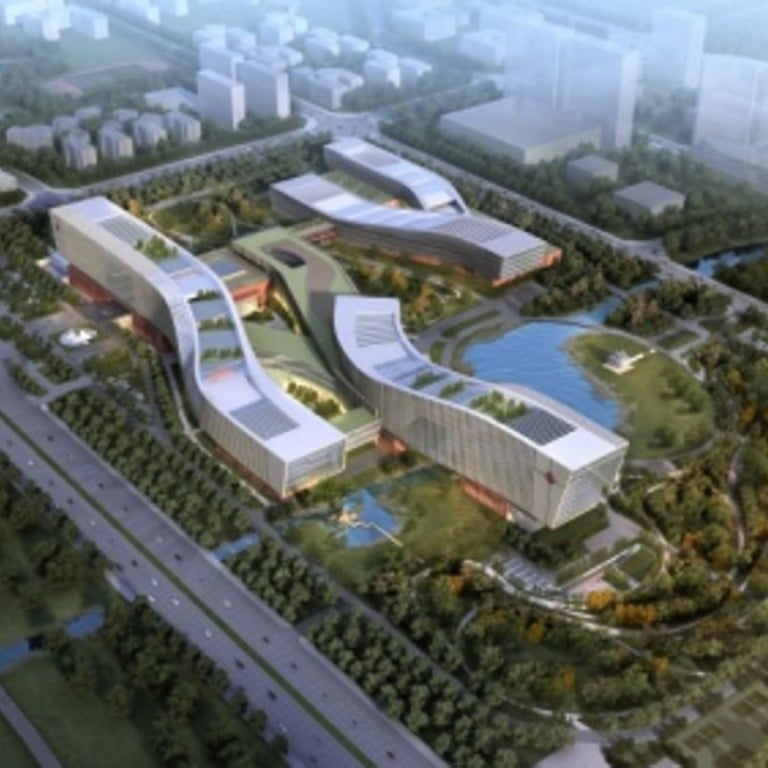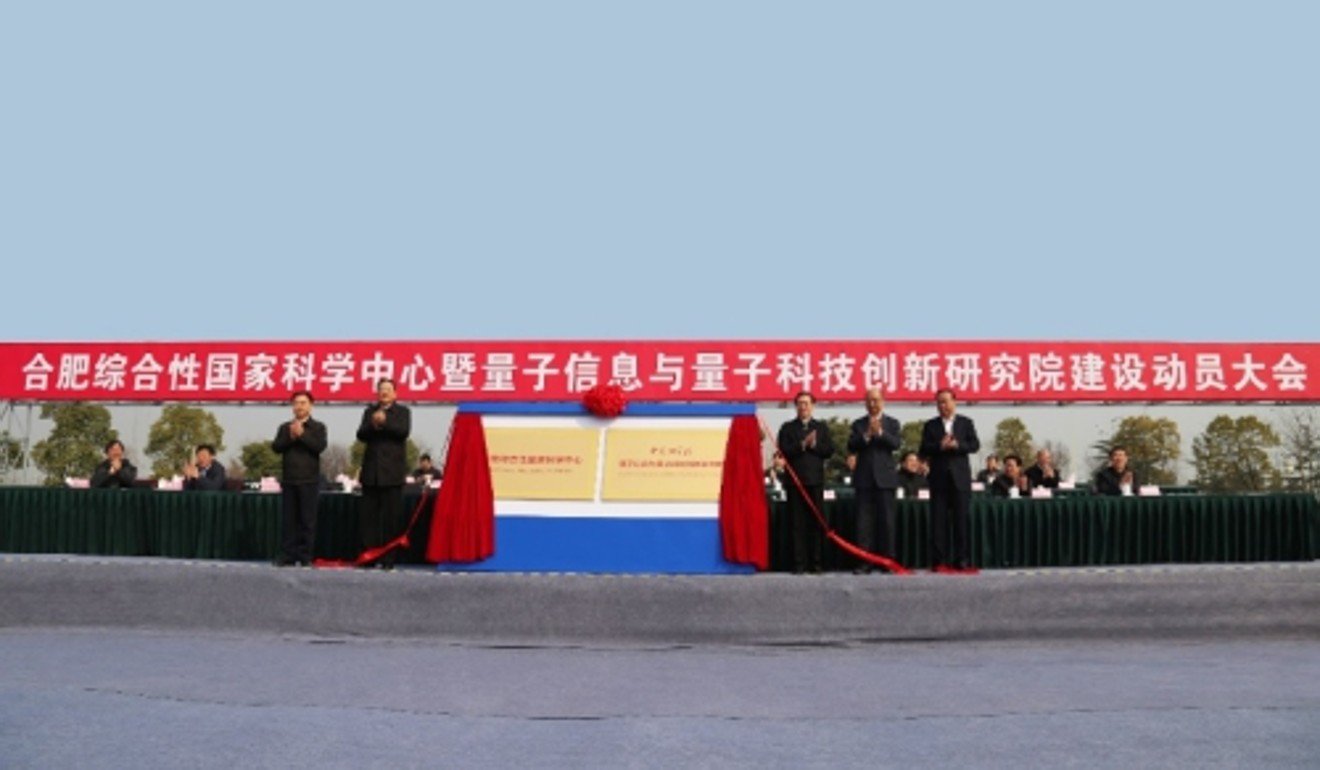
China building world’s biggest quantum research facility
Centre could boost military’s code-breaking ability and navigation of stealth submarines
China is building the world’s largest quantum research facility to develop a quantum computer and other “revolutionary” forms of technology that can be used by the military for code-breaking or on stealth submarines, according to scientists and authorities involved in the project.
The National Laboratory for Quantum Information Science will be located on a 37-hectare site next to a small lake in Hefei, Anhui province. Some time this month developers will be invited to bid for a contract to construct the site, according to an article in Hefei Evening News, a daily newspaper run by the city government on Thursday.
Pan Jianwei, China’s lead quantum scientist who was playing a key role in the project, told local officials at a briefing in May that technology developed in the facility would be of immediate use to the armed forces, according to Anhui Business Daily newspaper.
Quantum metrology, which measures small variations in physical parameters such as gravity with unprecedented accuracy, could significantly improve submarines’ stealth operations.
A submarine with a quantum navigation system could operate underwater for more than three months without the need to surface for positioning satellite signals.
After operating for 100 days underwater the captain would still be able to pinpoint the vessel’s position in the Pacific Ocean with a margin of error of just a few hundred metres according to Pan, who could not be immediately reached for comment.

Another key mission of the laboratory is to build the nation’s first quantum computer that could break an encrypted message in seconds.
“Our plan is that by 2020, or maybe as soon as next year, to achieve ‘quantum supremacy’ with calculation power one million times to all existing computers around the world combined,” Pan was quoted as saying by Anhui Business Daily, which is run by the provincial government.
It was unclear whether the computer could be used for code-breaking.
Construction work is expected to finish in 2 ½ years with a budget of 76 billion yuan (HK$91.6 billion).
Ground-clearing work started with approval from the central government in February, according to the website of the Chinese Academy of Sciences, the owner of the new facility.
Guo Guoping, a quantum information researcher at the Chinese Academy of Sciences in Hefei, said a general-purpose quantum computer could take many more years or even decades of effort.
Building a large facility with centralised resources could accelerate this process by pulling together the talents of scientists from all over the nation with knowledge and experience of multiple scientific disciplines to overcome a wide range of technical and engineering hurdles, he said.
Guo stressed that in the national laboratory, researchers’ performance should not be evaluated by the scientific papers they published but by their contribution to specific project targets, such as building a general-purpose quantum computer.
“This may sound a bit old-fashioned, even Soviet-style, but it can give China a chance to win the race,” he added.
China moved a step ahead with the launch of a quantum satellite last year and conducted a series of cutting edge experiments such as quantum entanglement and teleportation in space.
Last month the world’s longest and most sophisticated quantum key distribution network for ultra-secure communication between Beijing and Shanghai was successfully tested and deemed ready for official deployment in the military, government and financial sectors.
Guo said the field had advanced rapidly, but the delivery of a code-breaking machine by 2020 was “highly unlikely”.
Over the next few years, researchers from around the globe may be able to develop primitive quantum computers to deal with some specific tasks.
They could, for example, simulate the movement of particles at a subatomic level to solve some physical problems that might help develop new materials or drugs.
But these are not general-purpose computers capable of code-breaking, Guo added.
Some scientists have questioned the government’s enormous bet on quantum technology. Critics have warned that spending more taxpayers’ money on quantum research will only result in less funding for other disciplines.
A professor at Beijing University of Posts and Telecommunications, a major information technology research institute, said some computer scientists and cyber security researchers were worrying about their jobs.
“I have known some researchers whose funding applications were turned down because their study was unrelated to quantum. I have also met officials who knew nothing about quantum physics but took the bait on quantum computers and networks as offering a solution to all problems,” said the professor on condition of anonymity.
“They chose to ignore the fact that a quantum network can also transmit viruses, and a quantum computer today is slower than a hand-held calculator.”
Yang Changli, a quantum technology researcher at the Institute of Physics at the Chinese Academy of Sciences in Beijing, said he had heard of the project in Hefei but would not consider moving there.
“I have a family. They don’t like the idea of reallocation,” he said.
Yang also ruled out the possibility of splitting his time between two cities. “I am a scientist, not business executive. My time should be spent in a laboratory not a jet plane,” he said.

